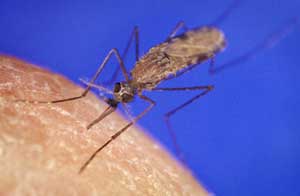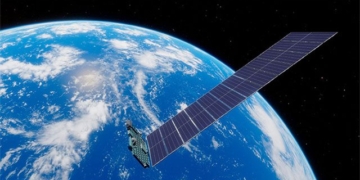Scientists have now developed a more effective early warning system for the spread of malaria. This system utilizes specialized computer programs from Europe to study weather conditions.
The new malaria warning system is called Demeter.
 |
Mosquitoes are vectors for malaria (Photo: VNN) |
Scientists state that this system will enable countries with high rates of malaria to forecast weather conditions months in advance. The computer system will compile data on sea humidity, sea surface temperatures, wind strength, and rainfall amounts.
The scientists introduced this new system in a report published in the journal Nature.
They tested the system using weather information from Botswana, Africa, from 1982 to 2002.
This computer model proved most effective in predicting years with low malaria transmission rates. The scientists claim that the Demeter system accurately predicted conditions 85% of the time during that period.
This research project was conducted by scientists from the UK, the US, and Botswana.
Researcher Tim Palmer, who leads a research group in the UK and works at the European Centre for Medium-Range Weather Forecasts, noted that this system provides health officials with more time to implement measures to curb the spread of malaria.
Other early warning systems used in various parts of Africa only provide forecasts a few weeks in advance for preparation.
Having more time to prepare preventive measures means timely provision of antimalarial medications and insecticide-treated nets to the population. Additionally, it allows individuals more time to eliminate stagnant water, which serves as breeding grounds for mosquitoes.
The Demeter system is currently being used to assist several countries in Southern Africa.
Scientists indicate that more accurate weather forecasts will give health authorities greater preparation time for responding to outbreaks once they occur.
Changes in climate and rainfall levels significantly influence the spread of malaria. Typically, the risk of disease outbreaks increases after periods of heavy rainfall.
The parasite that causes malaria is transmitted by mosquitoes. Mosquitoes lay their eggs in water, so the more water available, the more breeding sites there are for these insects.
According to the World Health Organization (WHO), over 1 million people die from malaria each year, the majority of whom are children in African countries, with hundreds of millions more affected by the disease.




















































